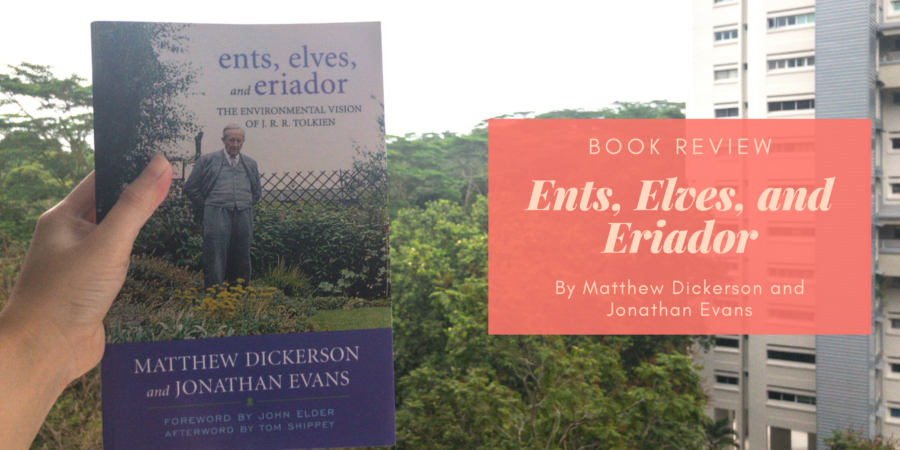It took me two tries before I could finish LOTR, and it took two attempts before I really got into this book – rather fitting, don’t you think?
Ents, Elves, and Eriador focuses on the environmental vision of J.R.R. Tolkien, which is another way of saying that the authors read LOTR and associated works, Leaf by Niggle, Farmer Giles of Ham, and other works and analysed what Tolkien’s feelings towards the environment might have been. The book goes into lots of wonderful detail, but in sum, they hypothesise that Tolkien believed that:
- The created world is good because it has been created
- Stewardship over the earth means taking care of the earth, not exploiting it, and hence
- Small farms that have a stake in the earth (and don’t have acres to waste) are better than big agri-businesses.
In terms of structure, the book starts with the value of the earth, and then zooms in into how the various people of Middle Earth treat the land (there are individual chapters for the hobbits, ents, and elves), before looking at the environment in other Tolkien works. With a view of how Tolkien built his world (and what that might say about his attitude towards ours), the book goes on to look at Modor and the consequences of environmental destruction.
As I mentioned in the start, this book took some time for me to warm up to it. It’s pretty academic in nature and I just did not understand what was going on until I finished Notes from the Underground and The Double, and then suddenly my brain had gotten used to more complex sentences and I found myself enjoying the book. If you’re already a huge Tolkien fan, however, you might have an easier time with this one.
Since I’ve only read a couple of Tolkien’s works, I enjoyed learning about all the other stories that Tolkien wrote. Leaf by Niggle, for example, sounds charming and I’ve added that to the TBR list. For books that I have read, like LOTR, this book made me realise that I had overlooked so much and made me want to reread them.
Given the academic tone of this book, I don’t think the casual Tolkien fan is going to pick this up. But if you’re really into Tolkien analysis or you’re interested in how Tolkien built his world/viewed ours, this is a book that you’re going to want to read.

I don’t know if this is something I would be interested in reading, but I can see the appeal to some. I loved The Lord of the Rings. My husband had been trying for years to get me to read the books, telling me I would love them. After seeing the first movie, I decided to give them a try and instantly fell in love. Come to find out, my husband had actually never read the books–so why did he push them on me?! Haha. I am glad he did though. I love the world Tolkien created.
This is definitely not for everyone! I think I missed most of the worldbuilding the first time I read the books (I was really focused on the characters) but this made me want to go back and reread them!
Ooooh okay so I’ve not yet read LotR (I know, I know, but I don’t own a copy so it’s never been a priority!) but I do care a *lot* about the environment so if I enjoy his books I might have to pick this one up!
It took me YEARS to finish LOTR. I think I was in my final year of Junior College? It’s an intimidating book, I don’t blame you at all!
Thank you for this review. To be honest, I would be shocked if Tolkien did not believe those three things.
That’s true! But he never articulated it quite as firmly so I suppose the scholars have to hedge their bets and make it sound like a theory (though from the way we wrote, we can probably guess how he felt!)